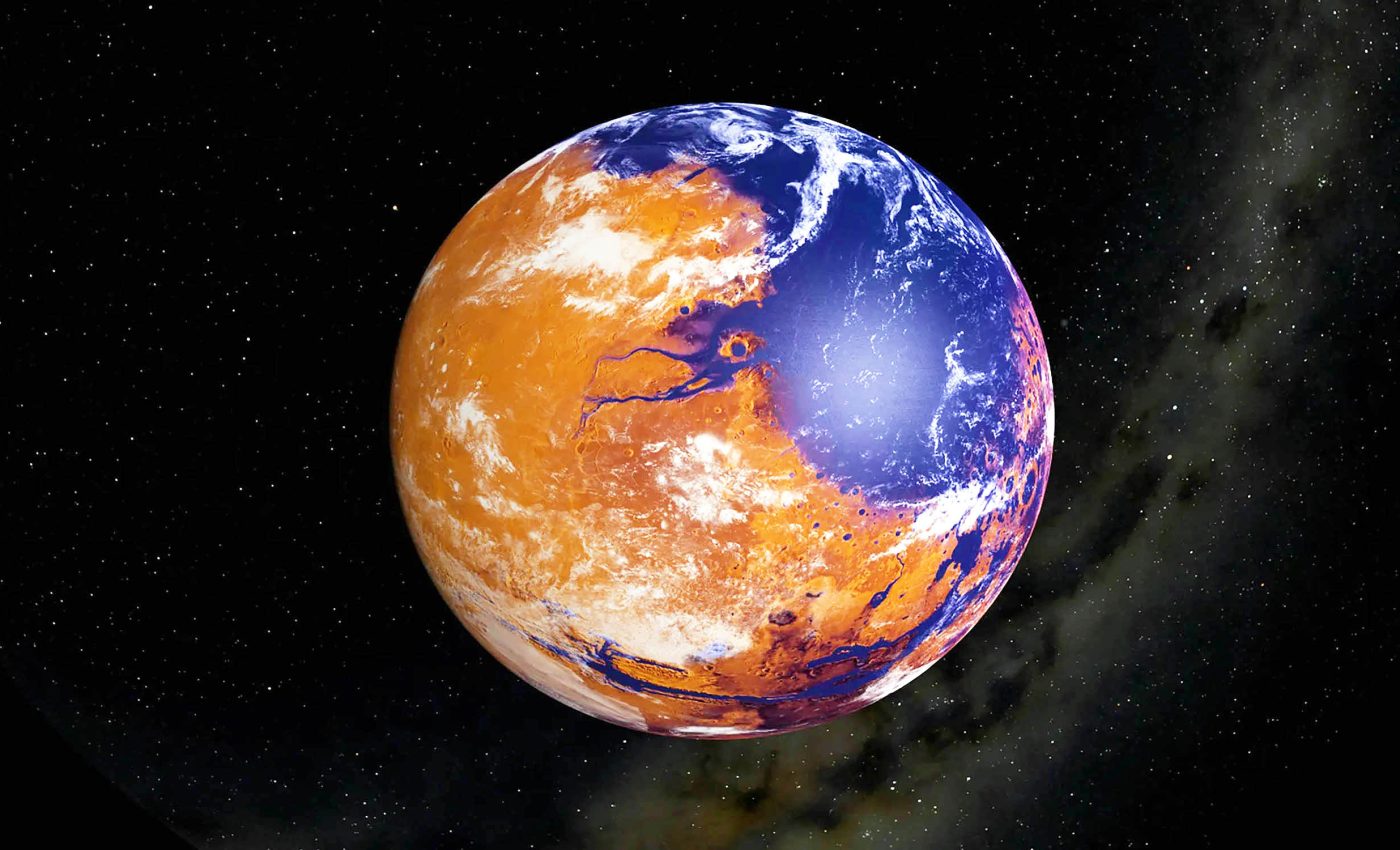
China's Zhurong Mars rover finds evidence of a vast Martian ocean
Mars, our celestial neighbor, has been hiding a secret for billions of years. Thanks to the relentless efforts of scientists and advanced technology, we now have more evidence supporting a long-debated theory about an ancient and vast ocean on Mars.
A Chinese rover has brought forth evidence that hints at the likelihood of a massive ocean, covering almost a third of the Red Planet, that existed billions of years ago.
Chinese rover makes a huge discovery
In 2021, China made an impressive stride in space exploration. Its Zhurong rover landed on Mars’ northern hemisphere, specifically the Utopia region.
This area had previously shown signs of ancient water presence, and now, it was time for a closer investigation.
The rover has been examining Mars‘ intriguing red terrain and its latest findings are truly mind-blowing.
According to the study, the rover’s landing area was riddled with “pitted cones, polygonal troughs, and etched flows” — features that indicate the presence of an ocean in the past.
The possibility of mud volcanoes forming those crater-like pitted cones has been suggested. These are often seen in areas where water or ice existed.
Ancient ocean on Mars
The research was led by Bo Wu, a scientist at The Hong Kong Polytechnic University. According to the findings, the Martian ocean might have been created from a massive flood about 3.7 billion years ago.
Over time, the ocean froze, carving out a coastline, and around 3.4 billion years ago, it disappeared.
Bo Wu, however, maintained an open stance on these findings. He stated that the team does not claim their findings definitively prove that there was an ocean on Mars. Martian rocks may be required for a more detailed study to settle the debate.
Benjamin Cardenas, a scientist from Pennsylvania State University, expressed skepticism about the new study.
He felt the research had not factored in the impact of the Martian wind, which could have significantly altered the planet’s terrain over billions of years.
Despite his skepticism, Cardenas is not entirely dismissive of the ocean theory. “I tend to think there was an ocean on Mars,” he stated.
Implications of an ocean on Mars
The discovery of a potential ancient ocean on Mars has profound implications for the ever-evolving search for extraterrestrial life.
Liquid water is considered one of the essential prerequisites for life, and the existence of a vast ocean significantly increases the possibility that primitive life forms could have once inhabited the Red Planet.
Understanding the duration and conditions of this ocean can provide vital clues about whether Mars had the right environment to support microbial life.
While no direct evidence of life has been found, this latest revelation strengthens the case for continued exploration and study.
There is particularly a need for missions focused on collecting and analyzing Martian soil and rock samples.
A critical site for future exploration
Looking ahead, the findings encourage a renewed focus on Mars as a critical site for future exploration.
Space agencies like NASA, ESA, and CNSA are already planning ambitious missions to further investigate the mysteries that the Martian surface holds.
One key objective is to obtain more conclusive evidence of past oceans and other potential water sources, which could further validate the likelihood of life.
New technologies, such as more advanced rovers and possibly even manned missions, are being designed to unlock Mars’ secrets and bring us closer to answering one of humanity’s most profound questions:
Are we alone in the universe? As these missions progress, the Red Planet continues to captivate scientists and enthusiasts alike, offering an unyielding promise of discovery and wonder.
Was there life on Mars?
The potential discovery of an ancient ocean on Mars opens up a thrilling possibility – could there have been life on Mars?
“Most scientists think life on Earth sprung up either under the ocean where hot gases and minerals from the subsurface came to the seafloor, or very close to the interface of water and air, in little tidal pools,” noted Cardenas. “So, evidence for an ocean makes the planet appear more hospitable.”
Did our neighbor Mars harbor life billions of years ago? The answer to this question might lie beneath the intriguing red surface of the Martian land.
The study is published in the journal Scientific Reports.
—–
Like what you read? Subscribe to our newsletter for engaging articles, exclusive content, and the latest updates.
Check us out on EarthSnap, a free app brought to you by Eric Ralls and Earth.com.
—–













